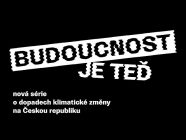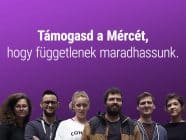On 15 September, the first issue of Reporter, a new Czech weekly, was launched by Robert Casensky, former editor-in-chief of the daily newspaper, Mlada fronta Dnes. Casensky hopes the new magazine could become the Czech version of The New Yorker or The Atlantic.
Reporter’s newsroom consists of people who, like Casensky, left Mafra, publisher of Mlada fronta Dnes, last year, after it was taken over by the agricultural holding business, Agrofert, whose only shareholder is Andrej Babis. The exodus of top journalists and editors from Mafra is part of a broader trend. Over the last year and a half there have been significant personnel changes between different dailies, online news servers, and magazines in the Czech Republic; all of them closely connected with recent changes in media ownership.
Personnel fluctuation and the formation of new self-proclaimed independent magazines fit the great rearrangements of media ownership in Central and Eastern Europe, also highlighted by an interdisciplinary research project Media and Democracy in Central and Eastern Europe, held between 2009 and 2013 at the University of Oxford.
Shortly after 1989, international western corporations began investing in media businesses in Eastern Europe. However, the 2008 global economic crisis, and falling profits, caused those investors to sell their shares. This is when the local billionaires and opportunists saw their chance.
Last year, Andrej Babis, the Czech Republic’s second wealthiest man, and since January 2014 the country’s finance minister, expanded his media empire by purchasing Impuls, the leading commercial radio station, and Mafra Media Group (which includes dailies Mlada fronta Dnes, Lidove noviny, and an online news daily iDnes.cz). In April 2013, Zdenek Bakala, a coal baron, strengthened his publishing house, Economia of Centrum Holdings, which operates an online news daily Aktualne.cz. Finally, in November that year a pair of Czech electric power billionaires bought the leading tabloid daily Blesk.
Reporter is not the only new title established by people who left Mafra after its takeover by Babis. In March 2014, an online news daily Echo24.cz was launched by Dalibor Balsinek, the former editor-in-chief of Lidove noviny.
Balsinek decided to leave Mafra shortly after the company changed its owner, following some of the leading journalists of Lidove noviny who refused to work for Babis. Echo24.cz quickly built an image of a leading castigator of Babis’ activities, which was reinforced by the finance minister himself.
After first week of the website’s existence, Babis attacked Echo24.cz during a government press conference, stating that the people around the title “made a nice project to strike me and my political movement.” He also added that, as a finance minister, he hoped the investor of Echo24.cz had completed his tax returns. This was largely viewed as an inappropriate attempt to threaten an independent medium.
First statistics from July show that Echo24.cz started quite successfully, having approximately 129 thousand users monthly. A new weekly tablet magazine related to the website was established in July and Balsinek plans to expand his portfolio further, to a printed magazine.
It is not unusual in the Czech Republic for staff to leave newsrooms that have been taken over by new owners. When businessman Zdenek Bakala bought the publishing house Economia in 2008, some journalists fled to the online news site Aktualne.cz. Then when Bakala took over Aktualne.cz (and its owner, Centrum Holdings) in April 2013, a major part of Anktualne’s newsroom left to join Mlada fronta Dnes.
However, the ongoing changes are more intensive and are leading to a fragmentation of Czech media, as well as to the destabilization of newsrooms. Some of those who built their careers in the established (mostly print) media are now working on new projects with an uncertain future. On the other hand, traditional newsrooms employ inexperienced staff, which reflect, and even to certain level, cause a decline in the quality of traditional media.
The changes in media ownership, especially the case of Andrej Babis, also raise concerns about the freedom and independence of Czech journalism. Babis has already caused controversy, apart from the case of Echo24.cz.
Shortly after he had bought Lidove noviny, he called the newsroom to complain that the previous issue of the daily had not mentioned a press conference his political movement, ANO, had held the day before. A recording of the phone call leaked shortly after and became a huge scandal.
Babis later visited the newsroom, apologized personally, and promised that such a situation would never happen again. Despite this, many critics say that Lidove noviny as well as Mlada fronta Dnes are now less critical about their owner’s political and economic activities.
These alerts, however, should not be compared with the situation in other post-communist countries such as Hungary, Bulgaria, or Romania. The Czech Republic is still, according to its Freedom House rating, a country with a free press (it is ranked 27th, after Estonia the second best rating from Central and Eastern European Countries).
“In the Czech case the risks for media freedom stem from the character of media ownership, whereas in Hungary it stems from the government,” said Vaclav Stetka, a researcher at Charles University in Prague.“Even Babis is not a threat for the media system and media market as a whole,” he added. “Hypothetically, he has powerful tools to do so but there are no indications he tries to use them.”
Photo credit: Petr Dosek / Flickr Cc
Tags: Andrej Babiš, change, Czech Media, Czech Republic, media, media owner, newsroom













































